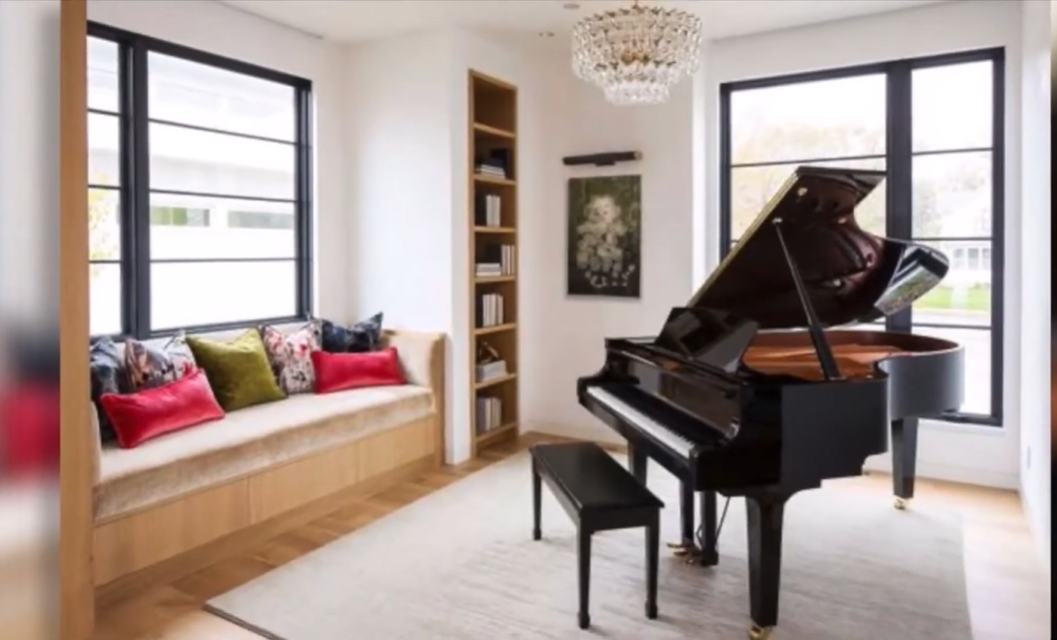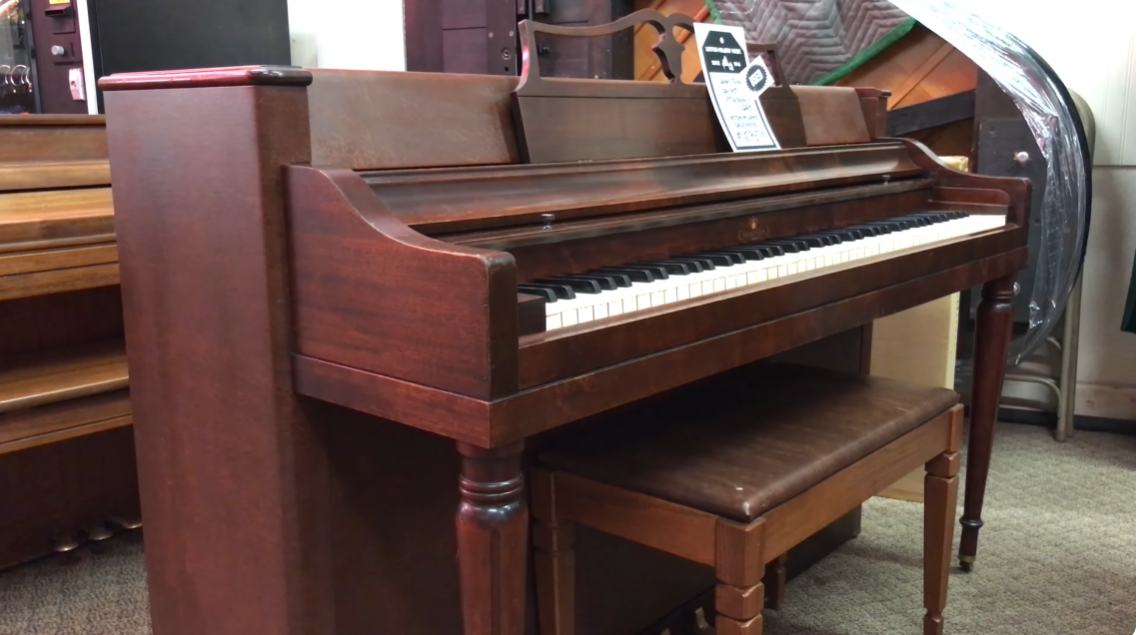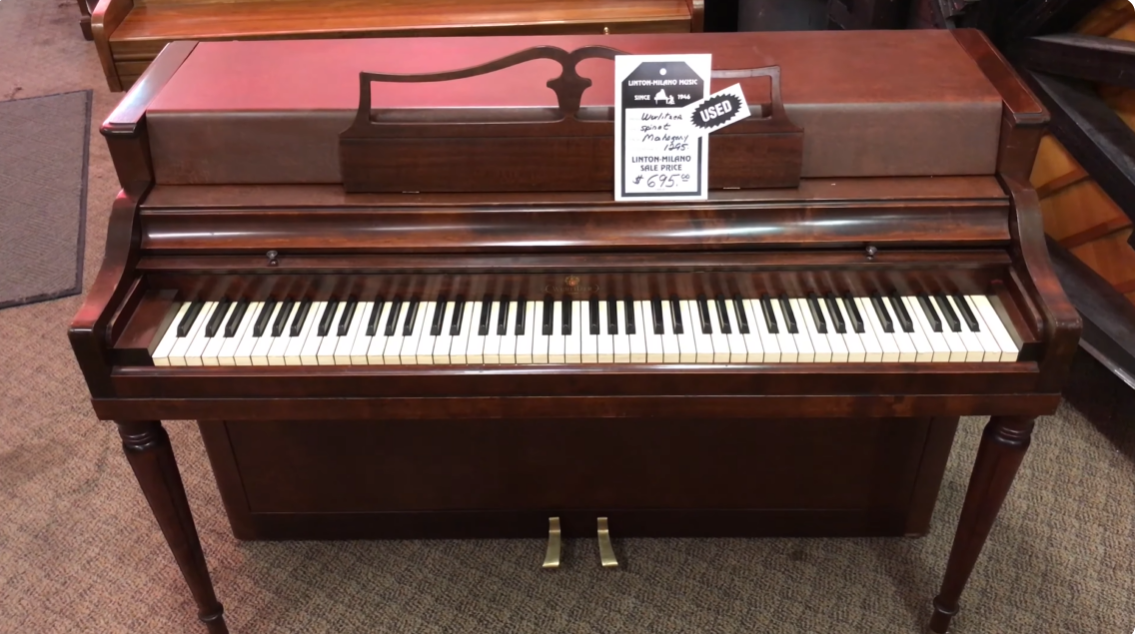While this blog is mainly about learning, playing, and taking care of your piano, selling a piano is a topic worth covering. After all, even if you love playing and have no plans to quit, there’s a good chance you’ll need to sell a piano at some point.
Maybe you’ve spent years practicing on your old digital piano and now you’re ready to upgrade to a shiny new upright or grand. Or maybe life’s changing—you’re downsizing and need to part ways with your cherished grand piano in favor of a more compact digital model. Whatever the reason, selling a piano can feel like selling a car—sometimes stressful, sometimes confusing.
Luckily, that’s where blogs like this come in—to help guide you through it.
When it comes to selling your piano, you really have two main options:
Sell it privately
Sell it to a dealer
Each option has its pros and cons.
If you choose to sell it privately, you’ll likely get more money for it. That’s because you’re cutting out the middleman and selling directly to the buyer. But it can take more time and effort—you’ll need to handle listing it, answering inquiries, showing the piano, and maybe even haggling a bit.
On the other hand, if you sell to a piano dealer, the process is usually much quicker and easier. Dealers often buy pianos outright, make any necessary repairs, and then resell them. You won’t make as much money this way, but you’ll save yourself the hassle.
So, which route should you take? That depends on your priorities—do you want top dollar, or do you want it done fast and stress-free?
In the next part of this guide, we’ll break down both options in more detail, so you can make the best choice for your situation.
Table of Contents
ToggleFirstly ; Why Sell Your Piano?

At first, this might seem like a strange question—but hear me out. If you own a valuable acoustic or digital piano and need to downsize due to lack of space, selling it is a smart way to recoup some of its value. What many people don’t realize is that digital pianos actually hold their value quite well. If yours is in good condition, you could sell it for 50% to 75% of its original price, especially if you find the right buyer.
Another important reason to consider selling is the environmental impact. Pianos—whether acoustic or digital—are built to last. They’re not meant to be thrown away like an old appliance. In fact, with proper care, a quality piano can provide decades of reliable use. Unless it’s completely beyond repair, there’s a good chance someone else would be happy to give it a new life.
If your piano was made in the last 40 years, or if it’s from a respected brand like Yamaha, Kawai, or Bechstein, it likely still has value. In cases like that, selling makes far more sense than dumping it—and it helps keep a beautiful instrument out of the landfill.
Do Pianos Increase in Value?
In most cases, no — pianos do not generally go up in value over time. If you buy a new piano today, there’s maybe a 10% chance it will actually appreciate. And honestly, that slim chance only applies to a very specific group of high-end pianos made by legendary brands like Steinway, Fazioli, or Bösendorfer. Outside of that elite circle, it’s extremely rare for a piano to increase in value as it ages.
The reason comes down to mechanical wear and tear. Pianos are complex instruments with thousands of moving parts. Over time, those parts wear out. So as a piano gets older, it naturally becomes less reliable and less useful — unless it’s been meticulously maintained or restored. Most pianos simply depreciate as they age.
The only real exceptions are those rare, iconic instruments made by top-tier brands. A vintage Steinway, for example, might go up in value not because it’s “better” with age, but because of its heritage, prestige, and demand among collectors. But if you own a more common brand like a Wurlitzer or Baldwin, chances are it won’t be worth much down the line — if anything at all.
Let’s look at upright pianos as an example. A well-made, widely respected model like the Yamaha U1 tends to hold its value well. If you bought a new one today, you’d likely be able to resell it in 10 years for a good percentage of what you paid. On the other hand, if you bought a cheaper brand like Pearl River or Young Chang, the resale value would be significantly lower.
This is similar to what happens with furniture. If you invest in a solid oak table, you can probably sell it years later for a decent sum. But if you buy something cheap from IKEA made from particleboard, it’s unlikely to hold any real value over time.
Does the Age of a Piano Matter?
This is a question many people get wrong, so let’s clear it up right away: just because a piano is old doesn’t mean it’s valuable. I see far too many people trying to sell 100-year-old pianos for far more than they’re worth, under the assumption that “old” means “vintage,” and “vintage” must mean “valuable.” That’s simply not the case.
The truth is, a piano is only as valuable as the musical experience it can still offer. It’s not a priceless antique just because it’s been sitting in a living room for generations. Most pianos that are over a century old have outlived their intended lifespans. They’re likely full of mechanical and technical issues, and restoring them usually costs more than the piano is worth. Sentimental value aside, that upright from your grandmother’s house might not even be worth the effort to list online—let alone repair. In many cases, it’s closer to firewood than a fine instrument.
To put it simply: if the piano is a well-known, respected brand and was made within the last 40 years, then yes, it might be worth selling. But if it’s older, obscure, or in poor condition, chances are it’s only worth its weight in scrap.
Where to Sell a Piano?
Selling to a Dealer
If you want a quick and easy sale, selling your piano to a dealer is often the best option. Dealers are interested in pianos that hold good resale value—brands like Yamaha, Kawai, Steinway, and others in good condition usually catch their attention. However, if your piano is older than forty years or in poor shape, dealers are unlikely to want it, since it would be difficult for them to resell.
That said, there are exceptions. For example, in the UK, there is a strong market for baby grand pianos made by English manufacturers from the 1930s to 1950s, such as Chappell, Challen, and Danemann. It’s a good idea to do some research to find out if your piano fits into a niche market like this by checking what local dealers are asking.
When selling to a dealer, don’t settle for the first offer. Visit or call several dealers to compare prices and services. Most reputable dealers will offer free removal of the piano from your home, making the whole process hassle-free. Be sure to check the dealer’s reputation by visiting their showroom or reading reviews. This approach typically results in a sale within a couple of weeks, giving you a quick and straightforward solution.
Selling Privately
Selling your piano privately can often earn you more money, but it comes with extra effort and some risks. Dealers don’t usually pay full market price because they need to cover any repairs or refurbishments to resell the piano.
If you don’t mind waiting a bit longer, selling privately lets you set your own price and negotiate directly with buyers. Start by listing your piano on websites like Craigslist, eBay, or local classifieds. When potential buyers show interest, invite them to try the piano at your home—this is essential since most people want to play before they buy.

Always insist on full payment before the piano leaves your house. Avoid any agreements where the buyer takes the piano without paying upfront. This helps protect you from scams and ensures a smooth transaction.
One important note: if you’re selling a digital piano, private sales might be your only option. Dealers rarely take used digital pianos because their resale value is usually low. Buyers often prefer to purchase new digital pianos, while used acoustic pianos remain more popular. The same private sale tips apply—research the market, price reasonably, and be flexible with buyers who want to try the instrument.
I hope this guide helps you feel more confident about selling your piano. If you have any questions or want more advice, feel free to leave a comment below. I’m always happy to help fellow pianists.
Until next time, happy practicing!

